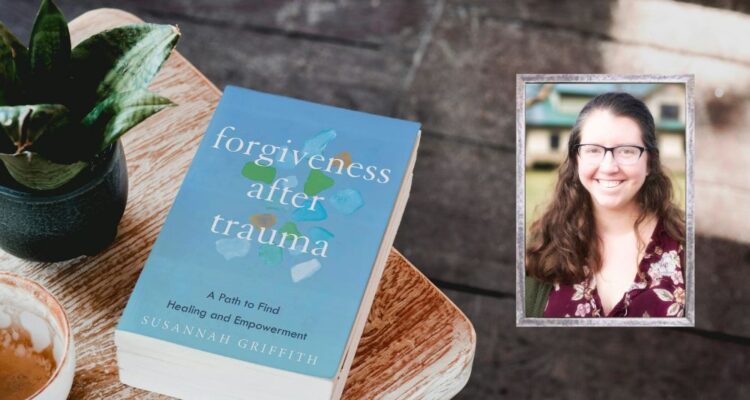The summer I turned nineteen, I felt a need to reckon with someone who had both harmed me deeply and done much good in my life. I decided to set new boundaries with this person. Predictably, when I set these new boundaries and confronted this person with what they had done, the whole family system that relied on shame, silence, and protecting those responsible went into disarray. I got a long email from a loved one about the fault I bore in causing this disruption to our family equilibrium. Truthfully, I deleted the email a long time ago (this was before it occurred to me that I might write a book on the topic of forgiveness), but I will never forget the gist of one of the lines: “You claim to be a Christian, but if you want to live up to this name, you have to stop what you’re doing and forgive.”
The writer of the email was not a Christian (ironically) but wanted to tell me how to be one for the sake of maintaining an abusive relationship. She had herself experienced abuse in the family dynamic she was defending. The email conveyed that Christian forgiveness means abnegating the right to talk about and resist experiences of abuse. Because my confrontation with abusive authority and my reluctance to stay in an abusive relationship caused pain, my action had to be inappropriate and un-Christian.
A few months later, I found myself unprotected in a situation where I was in close proximity to the person who had harmed me, whose influence I had long tried to escape. This person asked me on the spot, “I know you’ve had trouble in the past feeling like we could move forward in our relationship. Can we talk about this? Do you forgive me?”
Unable in that moment to find a safe way out of the situation, I quickly nodded, trying to disguise my vulnerability with casualness. “Sure,” I replied. “It’s fine.”
This was clearly the response the person wanted to hear. They quickly called others into the room and smiling through tears announced to the gathered group, “Susannah told me she forgives me! Everything is fine now!”
Fine . . . except that the harm done in this relationship had never been acknowledged. Fine . . . except that I wasn’t sure what “forgiving” someone whose actions in my life had been so catastrophic would entail. Fine . . . except that I was sure then that forgiveness was, once again, a concept being used to control me. Fine . . . except that the abuse would be repeated on other occasions, and I knew it.
The logic of forgiveness struck me as deeply wrong, but I was unable to figure out what forgiveness was at that time. Instead, that line in the email lodged in my mind (and that line is something I have revisited regularly). At that moment as a young adult, I felt as though I was selfishly choosing myself over long-standing relationships and even my faith— and yet I couldn’t force myself to relent from this seemingly un-Christian action.
Though I might not have articulated it then, the God who created me in his image, the Jesus I follow as Lord and Savior, and the Spirit who had led me on my way would not permit me to “forgive” in the way demanded. I knew I felt love for everyone with whom I was setting boundaries. I was not vengeful. I was not trying to cause harm, even though others certainly felt I was sowing discord. All I wanted, all I needed, was for my relationships to reflect that I was a child of God, worthy of safety, dignity, and love. My direct experiences of God didn’t seem to line up with the definition of forgiveness I’d internalized from church and my family. Could I really have been so misled?
What I knew I needed to do seemed to be a departure from scriptural tradition. But then again, I didn’t know too much about Scripture back then.
Content taken from Forgiveness after Trauma by Susannah Griffith, ©2024. Used by permission of Brazos Press.

